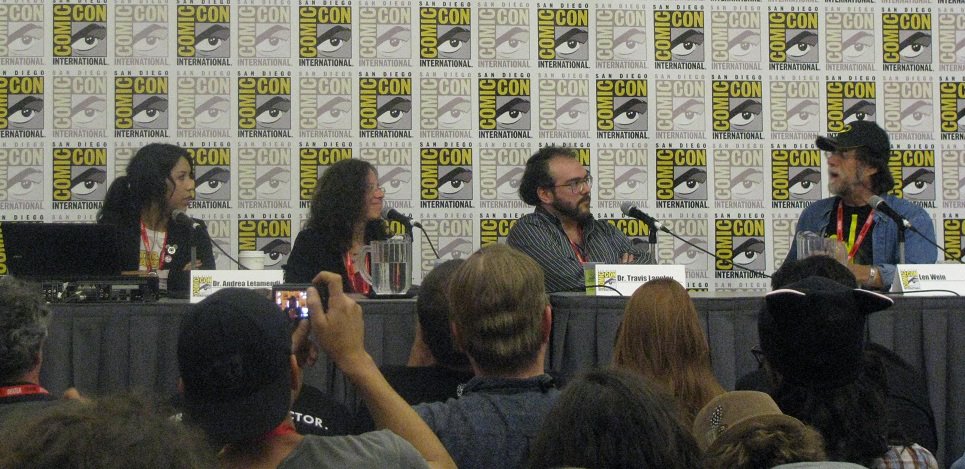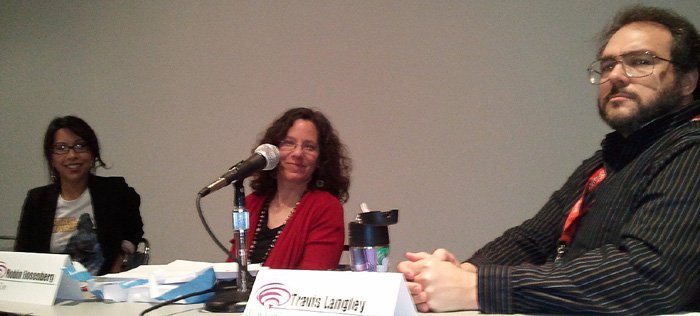Excerpt from http://thelxl.com/2011/08/04/sdcc-2011-round-up-lxl-panels
by Stephanie Thorpe: Andrea Letamendi held a fascinating panel Sunday afternoon called The Superhero Battlefield. …panelists deftly broke down how heroes or villains would be compelled to become what they are as a reaction to some severe psychological trauma. Prime examples included Batman and the growth he exhibited, versus someone like the Joker, whose philosophy was summed up by panelist Dr Langley: “if I kill you, I win. If you kill me, I win. How do you fight that?” Coming from an academic background myself, I really appreciated the perspective that that Dr Robin Rosenberg (The Psychology of Superheroes) and Dr Travis Langley (Batman in his Belfry) brought to the panel. I’d love to see them examine similar issues from a female perspective at SDCC next year.

 MTV Geek post by Alex Zalben:
MTV Geek post by Alex Zalben:



 Club activities are definitely going to get a lot more animated this year, courtesy of the Henderson Comic Arts Club. Under the supervision of Dr. Randy Duncan and Dr. Travis Langley, the Comic Arts Club – or Comics Club, as it’s more commonly known – is proving that fans have evolved far past the stereotypes of 5-year-old boys and basement-dwelling “Comic Book Guys.”
Club activities are definitely going to get a lot more animated this year, courtesy of the Henderson Comic Arts Club. Under the supervision of Dr. Randy Duncan and Dr. Travis Langley, the Comic Arts Club – or Comics Club, as it’s more commonly known – is proving that fans have evolved far past the stereotypes of 5-year-old boys and basement-dwelling “Comic Book Guys.”